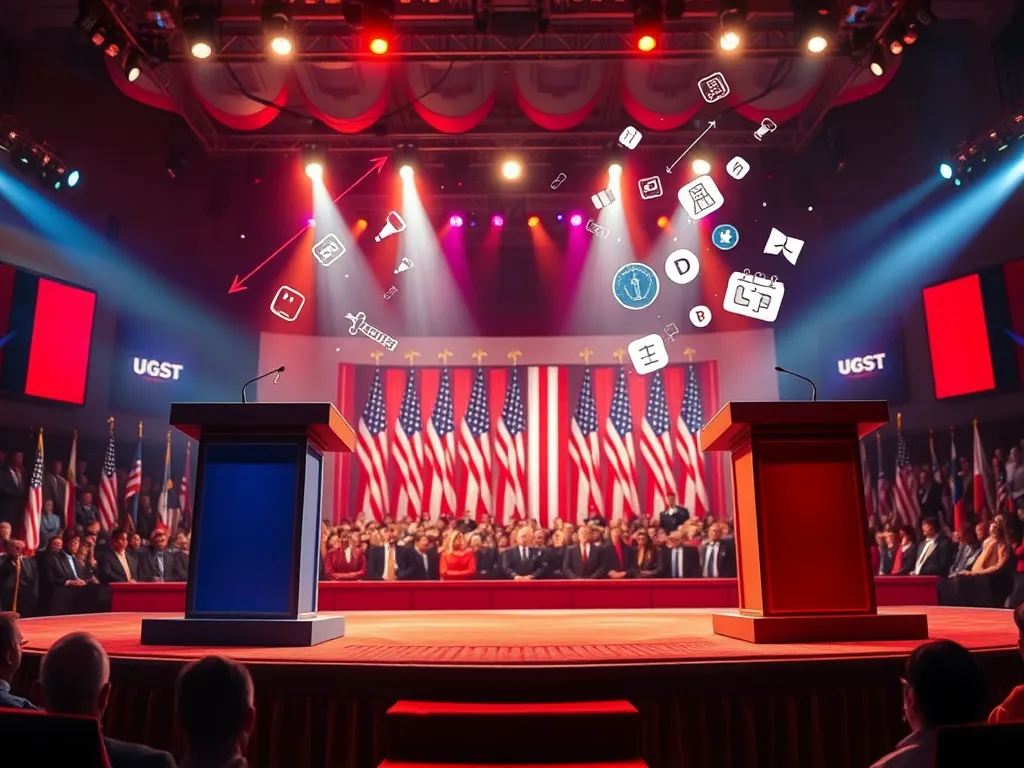
The Trump-Biden Debate: A Pivotal Moment in American Politics
The Trump-Biden Debate represents a critical juncture in the 2020 presidential election, showcasing sharp contrasts between the candidates' policies, personalities, and visions for America. This debate, held amidst a global pandemic and heightened social unrest, was not just a battle of ideas but also a reflection of the deeply divided political landscape in the United States. It provided voters with a platform to assess each candidate's readiness to lead the nation at one of its most challenging times.
Focusing on key themes such as the economy, healthcare, and foreign relations, The Trump-Biden Debate highlighted the stark differences in approach and ideology. President Donald Trump emphasized a continuation of his economic policies, arguing for tax cuts and deregulation, while former Vice President Joe Biden advocated for increased government spending on social programs and a comprehensive plan to address climate change. This contrast laid bare the fundamental choices voters needed to make as they headed to the polls.
Additionally, social issues such as racial equality, police reform, and COVID-19 response were central topics during The Trump-Biden Debate. Each candidate aimed to present their perspective on these pressing matters, with Trump defending his administration's actions and Biden calling for systemic change. The way each candidate addressed these issues reflected their broader campaign strategies and appealed to different voter demographics.
The debates created a high-stakes atmosphere, where each candidate aimed to dominate the narrative and sway undecided voters. The Trump-Biden Debate was not only about presenting policies but also about portraying a sense of leadership, empathy, and connection with the American public. How each candidate connected or failed to connect with viewers ultimately played a significant role in public perception and voter turnout.
In conclusion, The Trump-Biden Debate was a crucial event that provided insight into the candidates' personalities, governance styles, and the future direction they envisioned for the country. It left a lasting imprint on the electoral process and highlighted the importance of debates in American democracy.
The tactics and themes that emerged during the Trump-Biden Debate reshaped public opinion on key issues.
Debate Format and Structure
The Trump-Biden Debate followed a traditional debate format, typically used for presidential elections, which included multiple segments focusing on different topics. Each candidate was allotted equal time to present their views and respond to questions posed by the moderator. This structure was intended to provide a fair platform for discussion, while also allowing viewers to compare the candidates' responses directly to each other.
The role of moderators in The Trump-Biden Debate was crucial in guiding the discussion and keeping the candidates focused on the topics at hand. Moderators were tasked with ensuring that both candidates adhered to the time limits and engaged in respectful dialogue. However, the challenges of managing interruptions and maintaining order became apparent, as both candidates often strayed from the topic or spoke over each other.
Rules and regulations for The Trump-Biden Debate included a strict adherence to time limits and a defined set of topics. However, there was much debate about the enforcement of these rules, particularly regarding interruptions and personal attacks. The lack of stringent enforcement often led to heated exchanges and moments that dominated media coverage post-debate.
Key Issues Discussed in The Trump-Biden Debate
Economic policies were at the forefront of The Trump-Biden Debate, with Trump advocating for his administration's record on job creation and stock market growth. He defended tax cuts and deregulation as essential for economic recovery. In contrast, Biden argued for a more inclusive economic recovery plan that aimed to support the middle class and address income inequality through increased taxes on the wealthiest Americans.
Health care was another significant issue discussed in The Trump-Biden Debate. Biden criticized Trump's efforts to dismantle the Affordable Care Act, stressing the importance of maintaining protections for pre-existing conditions and expanding access to healthcare. Trump countered by highlighting his administration's efforts to lower prescription drug prices and improve healthcare competition.
Foreign policy positions were also scrutinized during The Trump-Biden Debate. While Trump emphasized his administration's focus on America First and downplayed international alliances, Biden argued for re-engaging with global partners and restoring America's standing in the world. This divergence underscored the differing philosophies of isolationism versus globalism in their potential approaches to foreign policy.
Candidate Performance in The Trump-Biden Debate
Rhetoric and speaking styles played a vital role in how The Trump-Biden Debate was perceived. Trump was known for his assertive and sometimes brash delivery, which his supporters found energizing. In contrast, Biden's approach was more measured and empathetic, attempting to appeal to voters’ emotions and present himself as a leader who could unite the country.
The body language analysis during The Trump-Biden Debate revealed much about the candidates' confidence levels and strategies. Trump often used aggressive body language, leaning forward and making sweeping gestures, while Biden maintained a relatively calm demeanor. These non-verbal cues helped to convey each candidate’s emotional state and approach to the discussion.
Fact-checking statements made during The Trump-Biden Debate became a focal point post-event, with various media outlets analyzing the accuracy of claims made by both candidates. Misstatements regarding healthcare, economic performance, and foreign policy led to public scrutiny and accountability, emphasizing the role of debates in fostering informed voter decision-making.
Public Reaction to The Trump-Biden Debate
Voter sentiment before and after The Trump-Biden Debate showcased a polarized electorate. Many voters felt energized to engage in the political process, while some expressed frustration over the aggressive tone of the debate. For undecided voters, the debate provided a crucial opportunity to evaluate the candidates' positions and personalities.
Social media reactions to The Trump-Biden Debate were immediate and widespread, with users highlighting memorable moments, fact checks, and personal opinions about each candidate. Twitter and Facebook became platforms for intense discussion and debate analysis, further demonstrating the impact of social media in shaping public discourse around political events.
The influence of The Trump-Biden Debate on election polls was notable, as many polls taken shortly after the debate indicated shifts in public opinion. Candidates often use such debates to gain momentum leading into the election, and the immediate post-debate polls reflected the candidates' performances and public perception of their effectiveness in addressing key issues.
Historical Context of The Trump-Biden Debate
In comparison to past presidential debates, The Trump-Biden Debate was marked by a unique intensity and a heightened level of personal confrontation. While debates have often showcased policy differences, the 2020 debate epitomized the broader societal divisions in America and reflected a departure from typical decorum associated with such events.
The impact of The Trump-Biden Debate on electoral history may unfold in the years to come, as debates have historically played a significant role in shaping voter opinions and influencing election outcomes. Observers noted that this debate might redefine expectations for future presidential debates, especially in terms of decorum and the level of personal attack.
Voter turnout trends following The Trump-Biden Debate suggested a high level of engagement among voters, particularly among younger demographics and those motivated by social issues. The debate served as a mobilizing moment, demonstrating the power of political discourse to influence civic participation and drive higher voter turnout.
